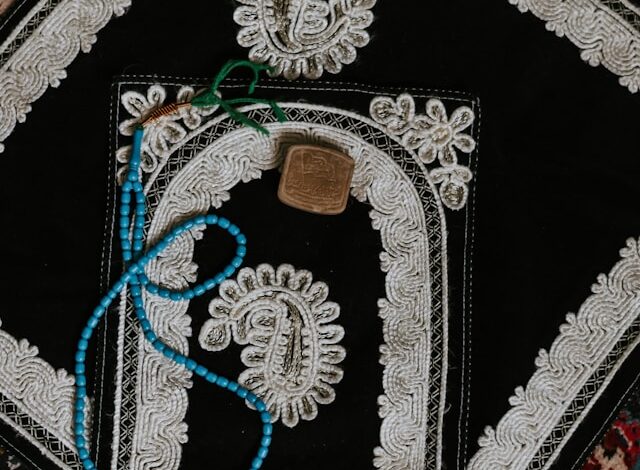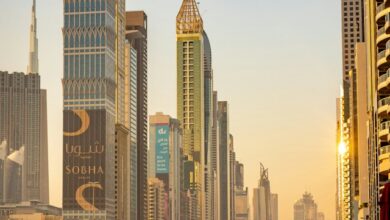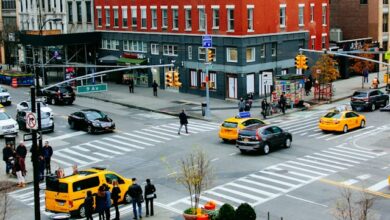Essential Information on Ramadan in Dubai: Working Hours, Free Parking, and More

Ramadan is the ninth month in the Islamic calendar and is a holy month marked by fasting, prayer, reflection, and community. In Dubai, as one of the most cosmopolitan cities in the Middle East, Ramadan brings changes to work schedules, school hours, parking regulations, and the overall rhythm of daily life to accommodate the needs of those observing the fast.
During Ramadan, Muslims fast from dawn to dusk each day. Fasting includes refraining from eating, drinking, and smoking. Ramadan is a time for spiritual reflection, increased devotion, and spending time with loved ones. Many Muslims will wake up early to have the pre-dawn meal known as suhoor, spend their days focusing on prayer and the Quran, and break their fast after sunset with iftar meals, either at home or in one of Dubai’s many Ramadan tents.
Working Hours Change
During Ramadan, working hours are typically reduced for employees in both private and public sectors across Dubai. While official confirmation of the exact revised working hours is usually announced closer to the start of Ramadan by the UAE government, generally employees can expect around a two hour reduction in their daily working timetable.
These shorter working hours apply to all employees, both fasting and non-fasting. The reduction allows fasting employees to conserve their energy during long and hot summer days. It also allows them flexibility before sunrise and sunset to prepare meals before starting and breaking their fast.
Mention of reduced working hours for fasting and non-fasting Dubai employees
As mentioned in the previous section, working hours are typically reduced by around 2 hours per day for all employees in Dubai during Ramadan, regardless of whether employees are fasting or not.
These shorter 6-hour working days ease the burden for fasting staff by giving them more rest time and flexibility to manage their fast. They also make it logistically easier for companies to maintain productivity despite having many fasting employees who need accommodations.
Early closure of government offices
Government entities and ministries such as schools, banks, and municipal offices typically close about 2 hours earlier than usual during Ramadan in Dubai.
For example, offices that would normally close at 2pm will instead close up at 12pm for the duration of the holy month. This allows fasting employees to end their working day and prepare for iftar meals after sunset.
Members of the public who rely on accessing government services should be aware that operating hours will be reduced at many offices, so plan visits accordingly.
Two-hour reduction in working hours for both private and public sectors
As stated previously, employees in both the private and public sectors in Dubai can expect around a 2 hour reduction to their standard working hours during Ramadan.
This means that a typical 9am – 5pm workday may be shortened to 9am – 3pm. The exact revised hours are usually communicated closer to the start of Ramadan once government authorities have made the announcement.
This allows fasting staff to conserve energy and non-fasting staff to support their colleagues. It also enables government entities and businesses to continue operating, albeit at a slower pace in keeping with the spiritual rhythm of Ramadan.
School Timings
School hours are also shortened during Ramadan to accommodate fasting students. Typically school days are reduced from about 7 hours of classes to only 5 hours per day.
In 2024, as spring break holidays are scheduled from March 25, students will only overlap with Ramadan for the last 2 weeks of the holy month. During those 2 weeks, schools will operate on a reduced schedule to accommodate fasting pupils.
The shorter school day allows young students to conserve their energy while fasting, while still continuing their education. Schools will communicate the specific timing changes to parents so families can adjust schedules accordingly.
Impact of spring break holidays on school timings
In 2024, the timing of spring break for Dubai’s schools coincides fortuitously with the beginning of Ramadan. Spring break is scheduled from March 25th through mid-April.
Meanwhile, Ramadan is expected to commence on March 22nd in 2024. So for the first 2 weeks of Ramadan, schools will already be closed for spring break holidays.
Students will therefore only need to observe the shortened Ramadan school hours for the last 2 weeks of the holy month once they return from spring break in mid-April. This means students get an extended break, and are spared from fasting for the busiest part of the school year.
Reduction of school hours for students during Ramadan
As noted in earlier sections, school hours are typically reduced by around 2 hours per day during Ramadan in Dubai to accommodate fasting students.
So for example, a normal school day may run from 8am to 2pm – a total of 6 hours of instruction. During Ramadan, that same school day may be shortened to run from 8am to 12pm – just 4 hours of instruction.
The reduction allows young fasting students to conserve energy and not overexert themselves while abstaining from food and drink during daylight hours. Parents will be informed of the exact revised school hours so families can make adjustments.
Eating and Drinking in Public
In the past, Dubai had strict regulations restricting eating, drinking, and smoking in public during daylight hours in Ramadan. Fines could be issued for violations.
However, in recent years these public conduct restrictions have been gradually relaxed as Dubai continues becoming more socially liberal and cosmopolitan. Enforcement of public fasting is now minimal, especially in free zones and tourist areas.
Currently, most restaurants and cafes continue operating normally throughout Ramadan, catering to both tourists and resident non-Muslims. That said, publicly eating, drinking or smoking could still potentially prompt objections in more conservative neighborhoods – so cautious discretion is advisable.
Past regulations on eating and drinking in public during Ramadan
Up until just a few years ago, Dubai enforced relatively strict social conduct regulations regarding eating, drinking and smoking in public spaces during Ramadan daytime hours.
These laws prohibited restaurants from serving food to non-fasting customers from sunrise to sunset. Additionally, fines could be levied against anyone caught eating, drinking or smoking in public during daylight hours.
Current practices in most restaurants during the holy month
In recent years, enforcement of public fasting regulations has relaxed as Dubai continues reorienting its cultural outlook towards tourism and business. Currently during Ramadan, most bars and restaurants remain open throughout the daytime.
Dubai’s culinary scene caters extensively to Ramadan with lavish buffet iftar meals. And many restaurants offer suhoor meals before dawn for Muslims observing the fast to fill up before their daytime abstention.
Respectful behavior towards fasting individuals suggested
While Dubai’s laws and policies have relaxed regarding eating in public during Ramadan, considerate discretion is still advised to avoid offending cultural sensitivities.
Refraining from eating, drinking or smoking in view of those who are fasting, despite it being legally permitted, demonstrates respect and avoids potentially upsetting more conservative locals.
Additionally, with many iftar buffet tents set up across the city, finding a private place for non-fasting tourists and residents to eat discreetly during daylight hours is easily done.
Parking
Parking hours and rates also change during Ramadan in Dubai. On Sundays parking is free all day. Paid street parking and parking zones typically have revised hours during weekdays and Saturdays in Ramadan.
The specific paid parking hours can vary by district, but usually fees apply from 8am to 6pm and 8pm to midnight. This allows free parking throughout the afternoon while people are resting and preparing for iftar meals after sunset.
However, some areas like Business Bay may still charge standard parking rates from 8am to 6pm year-round. Motorists should confirm precise parking hours in their destination neighborhoods to avoid fines.
Conclusion
Ramadan brings a unique cultural rhythm to Dubai. Work hours are reduced, school days shortened, and parking rules relaxed to accommodate fasting residents and employees. As an international crossroads, Dubai strikes a balance between adhering to Islamic traditions during the holy month and continuing to operate effectively as a modern commercial hub. Whether you’re a tourist or resident, the most important Ramadan guidelines for visitors to Dubai are showing consideration for those observing the fast, and confirming any changes to government office hours, parking regulations or business operations in your area. By making small adjustments to schedules and habits, we can all share in the spirit of community and compassion that makes Ramadan so special.



